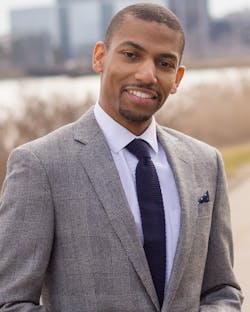“You mind if I take a look [at the patient’s medical record]? I’m actually a doctor.”
“Yeah, you said that several times last night. Really, you’re just a dentist.”
These lines from the The Hangover shed light on how dentists are perceived by many in the public, and even by some medical professionals. As a dentist myself, I am well aware of this perception and have worked to challenge it my whole career. Now that every American’s life is being affected by COVID-19, we have seen an outpouring of courage from frontline workers and medical providers in caring for those with the disease. The response to the pandemic, however, has also reinforced a misperception that dentists are little more than tooth mechanics. We are, in fact, health professionals who fill an important role during this pandemic in providing care to patients and lessening the burden on hospitals.
A Washington Post article from April 13, 2020, entitled “Patients in pain, dentists in distress: In a pandemic, the problem with teeth” tells the story of an elderly DC resident who was unable to get dentures because her dentist’s office was closed.1 In the article, the resident explains how she cannot eat properly since she has no teeth. At the time the article was written, guidance from the American Dental Association, the National Dental Association, and state dental boards recommended that dental offices remain open for emergencies. But many offices were closed, citing a lack of personal protective equipment (PPE). Despite being among health professionals at the greatest risk of contracting COVID-19, dentists have not been deemed a priority when it comes to receiving the recommended PPE.2 This leaves many dentists to provide care without the recommend PPE, such as N95 masks.
In addition to relieving pain from an infection in the oral cavity or an ill-fitting denture, dentists also save patients an unnecessary trip to the hospital. Studies have shown that emergency room visits for dental-related issues cost the US hundreds of millions of dollars each year.3 This effect is amplified during a pandemic, adding to the stress that emergency rooms are experiencing, some struggling to meet the demand of caring for patients with COVID-19. When dentists are not mentioned by state and federal leaders and not prioritized among health professionals in need of PPE, this reinforces the idea that dentists are not a critical component of the health-care system during this pandemic.
In 2000, the surgeon general’s report on oral health made the point that oral health is integral to general health. The report rose awareness of the importance of oral health and dentists’ role as more than just drillers and fillers of teeth. Through years of professional education beyond college, dentists become experts at preventing and treating diseases of the oral cavity. Twenty-one percent of professionally active dentists report working as dental specialists, which almost always requires additional formal training beyond dental school.4 Some specialists work in hospitals where they treat children with extensive dental needs and adults with special health-care needs under general anesthesia. These dental specialists have training in advanced life support, administering sedatives, monitoring vital signs, and, of course, providing treatment. In order for dentists to provide excellent care, they must be well versed in medicine.
As the US enters the recovery phase of COVID-19, it is important for federal and state leaders to include dentists with other medical professionals who should be prioritized in receiving PPE. It is imperative that dentists have all recommended PPE to provide care to patients safely, thus decreasing the stress on our health-care system. Additionally, COVID-19 diagnostic tests should be made available to dentists in order to screen staff and test patients.
Recently, I went to a DC metropolitan-area hospital and spoke with the head of one of the departments there, offering to volunteer wherever I might be needed. After explaining my credentials and my willingness to help during the pandemic, he asked me, “Other than dentistry, what can you do?” After I explained my skills in providing medical support, I realized the ridiculousness of the question, especially since I am a staff member at this particular hospital. Although not as blunt as the narrative in The Hangover, his perception of me was clear. He said they will give me a call if they need me, but I’m still waiting on my phone to ring.
References
1. Contrera J. Patients in pain, dentists in distress: In a pandemic, the problem with teeth. The Washington Post. April 13, 2020.
2. Gamino L. The workers who face the greatest coronavirus risk. New York Times. March 15, 2020.
3. Emergency department visits for dental conditions: A snapshot. American Dental Association Health Policy Institute. April 2020. Accessed May 27, 2020. https://www.ada.org/~/media/ADA/Science%20and%20Research/HPI/Files/HPIgraphic_0819_1.pdf?la=en
4. Supply of Dentists in the U.S. 2001-2019. American Dental Association Health Policy Institute. February 2020. Accessed May 27, 2020. https://www.ada.org/en/science-research/health-policy-institute/data-center/supply-and-profile-of-dentists
Nicholas B. Gordon, DMD, MPH, is a board-certified pediatric dentist and clinical instructor at Tufts University School of Dental Medicine. He serves as co-chair of the National Dental Association Global Oral Health Outreach Committee, where he works to make dental care universally accessible. Dr. Gordon was awarded the Herschel S. Horowitz Scholarship from the American Association of Public Health Dentistry Foundation, and his research focuses on access to care for vulnerable populations. Dr. Gordon provides dental care in private practice in Camp Springs, Maryland. In his free time, he enjoys running, kayaking, and speaking to youth about the dental profession. Find Dr. Gordon on Twitter @ngordondmd.






